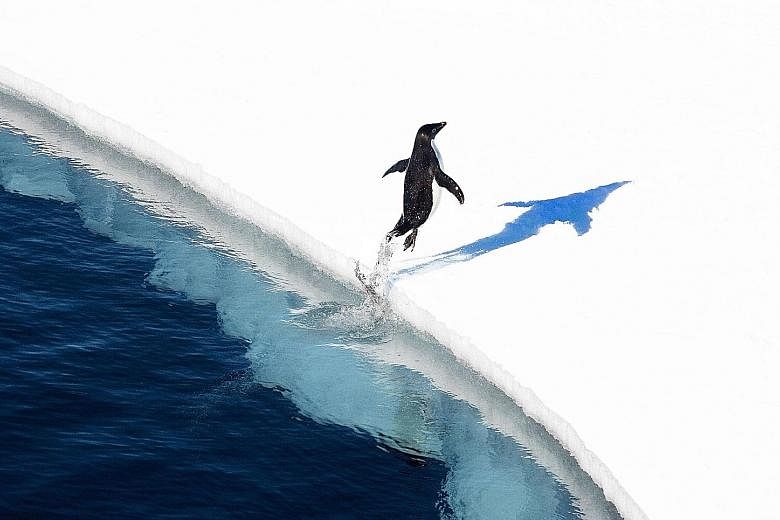SYDNEY • The world's biggest marine reserve, almost as large as Alaska, will be established in the Ross Sea in Antarctica under an agreement reached by representatives of 24 nations and the European Union in Australia.
The policymakers and scientists agreed unanimously yesterday to create a zone that will encompass 1.5 million sq km of ocean.
Of that, 72 per cent will be out of bounds to commercial fishers. The remaining 28 per cent represents two research zones where scientists can catch limited amounts of fish and krill - tiny invertebrates that provide food for whales, penguins, seals and other animals - for research.
The area, which is mostly contiguous and hugs the coast off the Ross Sea ice shelf, will come under protection on Dec 1 next year, and remain a reserve for 35 years.
The agreement was reached in Hobart, Tasmania, at the Commission for the Conservation of Antarctic Marine Living Resources.
"This is a major step in marine conservation not just for the Antarctic but internationally," said Mr Evan Bloom, director of the US State Department's Office of Oceans and Polar Affairs and the head of the US delegation to the commission.
"Part of it is the size, but the significance of this is that most of the marine protected area is a no-take area, and that involved 25 countries and complex, long-term environmental negotiations."
The Ross Sea marine park, in the Southern Ocean, had been on the commission's agenda for about six years, and conservationists had been arguing for a no-fishing zone there for a decade, said Ms Andrea Kavanagh, a director of the Southern Oceans Sanctuaries Campaign at Pew Charitable Trusts in Washington.
Although the commission did not reduce the tonnage of fish that can be taken from the Ross Sea, vessels have been pushed into areas further out to sea and away from ecologically significant sites that include breeding and feeding grounds for whales, large fish, penguins and other sea birds.
"This is a great result for quiet diplomacy and honest toil," New Zealand Foreign Minister Murray McCully said in a telephone interview.
NYTIMES

